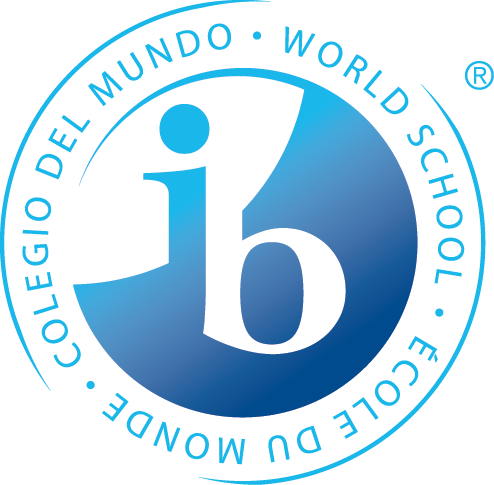Science
COURSE DESCRIPTORS
Science 8
The Science 8 curriculum covers five major topics: Applications of Science examines the Scientific Method and its application to the "Real" world; Cells and Systems investigate the structure and function of the cell and the immune system; Chemistry examines the behavior of matter, KMT theory; Earth Science investigates the theory of plate tectonics and earths geological processes. The Optics unit- starts with the exploration of the characteristics of the electromagnetic spectrum and ends with looking at optical systems.
Science 9 - Prerequisite: Science 8
The Science 9 curriculum covers four major topics: Chemistry examines electron arrangement of atoms how it impacts their chemical nature; Biology looks at cell division and reproduction; Earth Science examines matter and energy cycles and their interconnectedness; Students will also explore static and current electricity in the Physics unit.
Science 10 - Prerequisite: Science 9
The Science 10 curriculum covers four topics; Biology, more specifically ecology, studies ecosystems, energy flow and how ecosystems change. It also looks at how human effect ecosystems and sustainability. The chemistry component includes atomic theory, classification of compounds, chemical reactions and radioactivity. Velocity and acceleration are investigated in the physics section. Space is covered by the study of the formation of the universe.
Environmental Science 11: Prerequisite: Science 10
Environmental Science 11 is designed for students to experience our local environment while gaining an understanding of how it functions and how humans play a role in it. The course begins with an introduction to ecosystems, which leads into topics about how the atmosphere, geology, water, and living things are interconnected around the world. This information guides the course discussions on how climate change occurs naturally and by human impacts, but also how humans can work to restore the environment. Students will take a hands-on, experiential manner of learning the course content while being involved in outdoor field studies and stewardship initiatives.
Evaluation is based on assignments, field notes, lab work, exams, and stewardship projects.
Life Science 11 - Prerequisite: Science 10 (Recommended C+ average or better)
Biology 11 is designed to help students explore the basic principles of Biology. The course begins with a study of evolutionary theory and then surveys a representative sample or organisms ranging from the simplest to the most complex. Units of Microbiology, Plant and Animal biology allow the student to appreciate the diversity of life on earth and to study some organisms in detail. Students also develop basic lab skills such as virtual animal dissection and use of the compound microscope.
Evaluation is based on lab work, assignments, projects, quizzes and exams.
Anatomy and Physiology 12 - (Recommended C+ average or better - It is recommended that students complete Chemistry 11 before taking this course.)
This is a course intended for those students who are interested in preparing themselves for post-secondary studies in the biological sciences and or medical related careers. This course concentrates on the physiology of living things. A study of cells leads to the study of tissues, organs and organ systems with particular concentration on humans.
Evaluation is based on lab work, assignments, quizzes and exams.
Chemistry 11 - Prerequisite: Science 10 and Math 10 (Recommended C+ average or better)
Chemistry 11 is an interesting and challenging course that builds on concepts and skills developed in Science 8-10. The course begins with an in-depth study of matter, the periodic table, atomic theory, and the structure of atoms and molecules. The mole concept, chemical reactions, stoichiometry, solutions, bonding and organic nomenclature are then studied in detail. As there is an emphasis on problem solving; students entering Chemistry 11 should have good Math skills.
Evaluation is based on lab work, assignments, quizzes and exams.
Chemistry 12 - Prerequisite: Chemistry 11 (Recommended minimum C+ standing - It is recommended that students take Math 12 concurrently)
This course is intended for those students who have shown an aptitude for Chemistry and plan to take Chemistry and related courses at the post-secondary level. Chemistry 12 is a problem-centered course involving more advanced concepts than Chemistry 11. The topics covered are: Reaction Kinetics, Equilibrium, Solubility of Ionic Substances, Acids, Bases and Salts, and Electrochemistry.
Evaluation will be based on labs, assignments and tests.
Earth Science 11 - Prerequisite: Science 10
Earth Science 11 is a course designed to introduce students to the many aspects that shape and change our plant. The course explores Earth from every angle: in (rocks, minerals, earth resources), on (earthquakes, volcanoes), under (plate tectonics) and above (astronomy). Students will gain an appreciation of the dynamic nature of the planet, as well as of the vast changes Earth has undergone in its geologic history. The course will investigate everything from the demise of the dinosaurs, to why 宅男社区 should be concerned about its earthquake risk.
Evaluation will be based on labs, assignments and tests.
Physics 11 - Prerequisites: Science 10 and Math 10
Physics 11 is an introductory course with an emphasis on problem solving, data collection and interpretation. The main topics are motion in one dimension, energy and wave phenomenon. Physics 11 is recommended for all students who wish to pursue academic studies or career training in scientific, technical and medical fields.
Evaluation is based on lab work, assignments, quizzes and exams.
Physics 12 - Prerequisites: Physics 11 [minimum of C+ or better] and Math 11 [minimum of B or better]. (It is recommended that Math 12 be taken concurrently or before Physics 12.) Physics 12 is recommended as a follow-up physics course suitable for students who have a particular interest in Physics or who plan to continue in science or engineering. The course covers: Vector Kinematics, Vector Dynamics Energy and Vector Momentum, Circular Motion and Gravitation, Electrostatics, Circuitry, and Electromagnetism.
Evaluation will be based on labs, assignments and tests.
Contacts
Last Name | First Name | Email Address | Job Title |
|---|---|---|---|
HINDS | Kimberly | Science Department Leader; Teacher |


